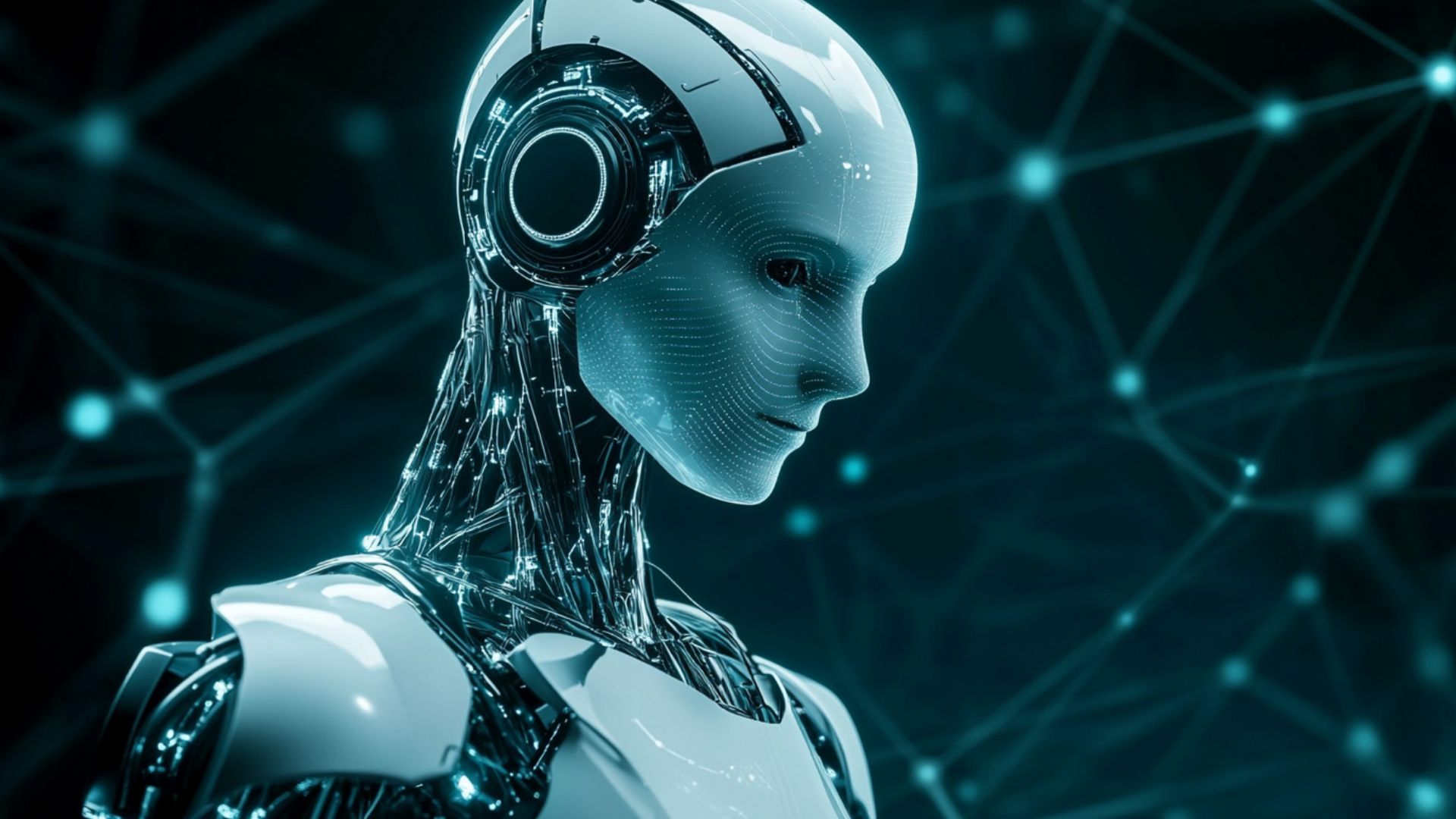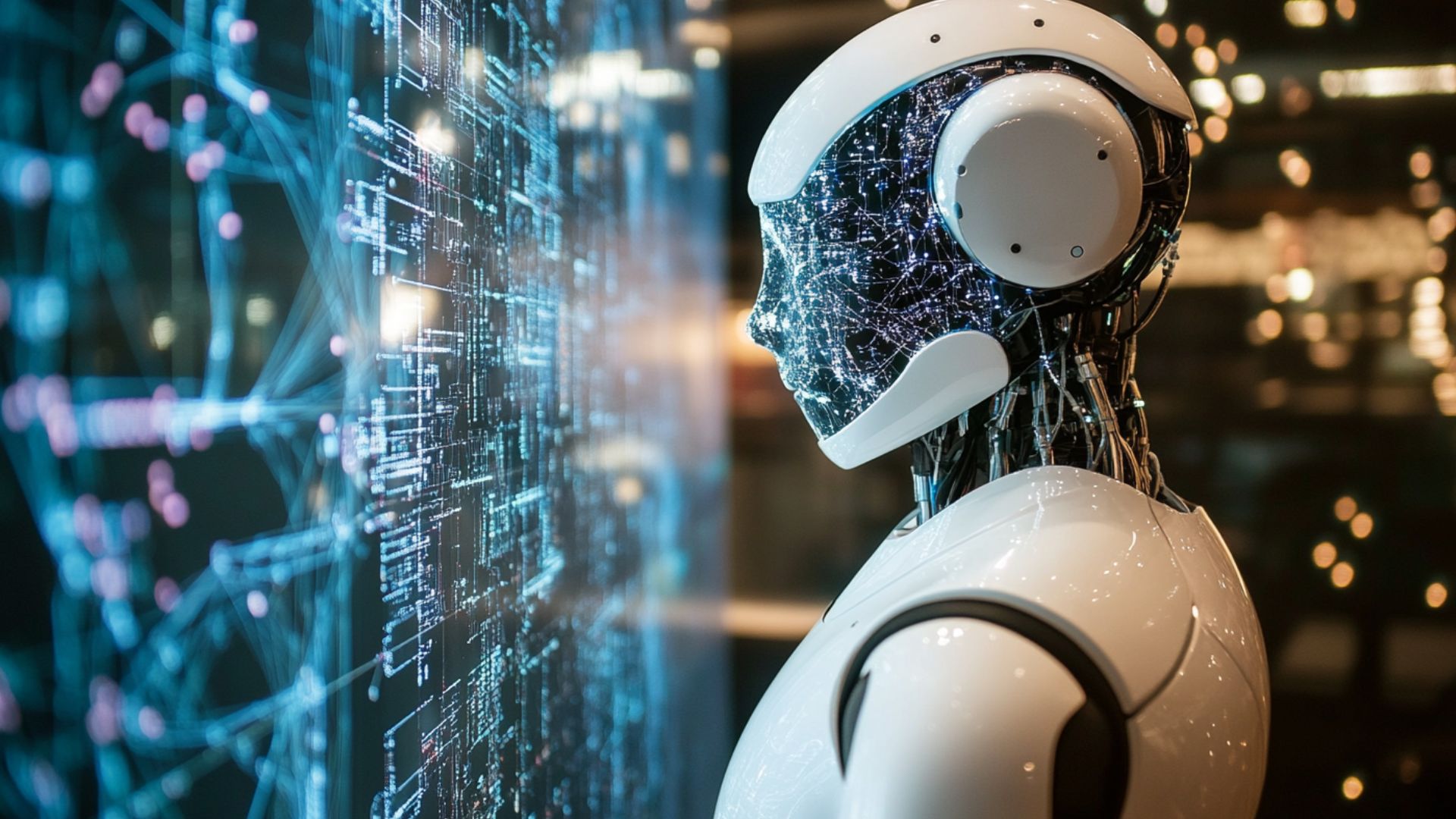Transforming Teaching and Learning for a Personalized Future

The future of customer service and the role of AI intertwine with the studying process. It has the potential to be a reformative force in the field of education. AI offers a huge range of benefits to students, educators, and institutions alike. Such influence in this sector can reshape the way we approach teaching and learning. Also, ushering in a new era of educational possibilities. By leveraging information analytics and AI learning algorithms, it can adapt content.
Also, an instruction to suit the unique needs and learning styles of students. This tailoring of education ensures that each student receives the support and resources. They need to thrive, making learning more engaging and effective. The influence of AI in education is undeniable. It reshapes the landscape of teaching and learning. It has the power to personalize learning, streamline tasks, and offer valuable insights. This promotes inclusivity and holds the promise of a more accessible future for education. AI for customer support also allows you to make informed training decisions.
Customized Education: Pioneering Individualized Learning Paths with AI
Customized education is a powerful method for enhancing educational results. It revolves around the concept of adapting the learning experience. This way, AI meets the distinct requirements and proficiencies of every student. This tailored approach optimizes the efficient use of educational resources. Additionally, pupils are able to cultivate the skills and knowledge they need at their own preferred pace. All learning materials are suitable to each student's existing skill level. Also, for their individual speed of comprehension. This guarantees that students remain engaged without experiencing tedium. Due to simplistic content or feeling overwhelmed by challenging material.
Moreover, this method empowers students with the freedom to navigate their educational journeys. Also, it provides them with the versatility to explore topics that ignite their curiosity. Students may go deeper into subjects they excel in. They can receive more customer support automation in areas where they struggle. Personalized learning relies on data analysis to understand a student's strengths and weaknesses. Here are some key aspects of personalized learning:
- Self-Service Options: Personalized learning encourages student ownership of the learning process.
- Feedback Mechanisms: They are essential for gathering and evaluating user input.
- AI-Powered Help: These can prove invaluable in comprehending customer queries and preferences.
Personalized learning may also play a significant role in the future of customer service. You can transform your educational process with newo.ai.
Revolutionizing Industries through Data-Driven Insights and Machine Learning
Such an ecosystem refers to the interconnected network of technologies and strategies. This is prevalent in various industries. They include e-commerce, marketing, healthcare, education, and more. Data is the foundation of personalization. This includes collecting data from various sources. For example, user behavior and preferences. AI-powered algorithms analyze this data. This way, it is possible to gain insights into individual customer or user profiles. Machine learning models can detect patterns and predict future behaviors. Machine learning algorithms are central to personalization. They are necessary to make predictions and recommendations based on the data collected.
The development of customer support automation aims to streamline support processes. Also, to reduce response times and improve user satisfaction. Such algorithms allow users to divide into groups. They are also necessary to predict user preferences. Recommendation engines are a common application of AI personalization. They analyze user data to suggest products, content, or actions to individual preferences. Examples include content recommendations on streaming platforms and product recommendations on e-commerce websites. Here are the key components of the AI-personalization ecosystem:
- E-commerce Personalization: This includes individualized product recommendations, personalized pricing, and personalized offers.
- Privacy and Security: Protecting user data and ensuring its privacy are critical aspects. This concerns the AI-personalization ecosystem.
- Continuous Learning and Optimization: The AI-personalization ecosystem is iterative. Algorithms learn from user interactions and strategies optimization over time to enhance personalization.
The AI-personalization ecosystem empowers businesses to create more efficient digital customer service solutions.
Enhancing Learning Experiences from Early Childhood to Professional Development
AI's impact on education spans all levels. It can improve the quality of learning. Also, it concerns the accessibility for students of diverse backgrounds and abilities. In early childhood education, AI apps can adapt content and activities based on the child's age, abilities, and progress. AI-powered speech recognition can help children improve their language skills. By providing pronunciation feedback and language practice exercises. In K-12 education, AI can tailor lesson plans and assignments to individual students. This ensures they receive content that matches their learning pace and style.
Customer support AI chatbot service can assist students with homework and provide explanations. AI-driven communication tools can keep parents informed about their child's progress. This allows for more effective parent-teacher collaboration. In higher education, AI can help students to select courses, majors, and career paths. They base their interests, skills, and the job market's demands. It can provide advanced tutoring for complex subjects, offering real-time feedback and explanations. Here are some examples of how AI works in lifelong learning and professional development:
- AI Career Coaches: Customer support AI chatbot service or platform provides career guidance. They suggest courses and skills to help professionals advance in their careers.
- Microlearning and Just-in-Time Training: AI curates short, focused learning modules for quick. On-demand knowledge acquisition is suitable for busy professionals.
- Language Learning and Cultural Competence: AI-driven language learning apps offer personalized lessons. Also, the cultural context assists individuals in acquiring new languages.
These apps help learners to get knowledge and to develop skills in their educational journeys.
Enhancing Student Learning and Streamlining Educator Tasks

AI for customer support in education benefits both students and educators. It personalizes learning, increases engagement, and provides immediate feedback. Also, AI enhances the educational experience. It streamlines administrative tasks for educators and offers data-driven insights. This promotes improving teaching strategies. AI adapts content and learning materials to each student's needs and learning style. It leads for improving comprehension and retention. Interactive and gamified AI-based lessons make learning more engaging and enjoyable for students. This leads to higher motivation. AI provides immediate feedback on assignments and assessments. This helps students understand their mistakes and learn from them in real time.
Automation of administrative tasks, such as grading and lesson planning. It frees up educators to focus on teaching and providing personalized support. AI provides educators with insights into student progress. It enables them to tailor instruction and intervention strategies to address specific needs. AI can suggest and curate educational materials. This helps educators to find the most relevant resources for their lessons. Among other benefits for students are:
- Data-Driven Insights: AI analyzes students' performance data. This helps to identify strengths and weaknesses, allowing educators to offer targeted interventions.
- 24/7 Support: AI-driven virtual tutors and resources are available around the clock. They are providing help whenever students need it.
Among the advantages of customer support automation for students are:
- Enhanced Communication: AI can assist educators in communicating with students and parents.
- Innovative Teaching Tools: AI offers educators new tools. For example, virtual labs, simulations, and virtual reality experiences. They help to make learning more engaging.
These advantages contribute to more efficient educational processes. Better learning outcomes and increased student and teacher satisfaction.
Evaluating the Impact of AI in Education
Measuring the impact and effectiveness of AI in education is important to determine some things. For example, whether these technologies achieve their intended goals. Also whether they benefit pupils, teachers, and educational institutions. Assess whether students using AI-enhanced tools and platforms perform better grades. Test scores and knowledge retention compared to those who do not. Analyze how AI-powered adaptive learning systems affect students' progress. Their mastery of subjects in comparison to traditional teaching methods.
Examine if pupils are meeting predefined learning outcomes with the help of AI. Measure changes in attendance and participation rates in AI-enhanced courses or programs. Gather feedback from students to understand their level of motivation with AI tools. Assess whether AI-powered personalization tailors content to individual needs. Also, the learning styles of students. Determine if the use of AI has led to greater learning. It gains for students with diverse learning needs. Here are some key ways to measure the impact and effectiveness of AI in education:
- Qualitative Studies: Conduct interviews, surveys, and case studies. It is necessary to capture the subjective experiences and perceptions of students. Also, educators and administrators about AI in education.
- Privacy and Compliance: Test how well AI digital customer service solution in education adheres. Also, how to regulate and ensure the security of student data.
- Ethical Considerations: Investigate the ethical implications of AI in education. It includes potential biases, fairness, and ethical use of AI technologies.
It is crucial for educational institutions to use these measurements. They can improve their AI implementations and ensure that they align with their educational goals.
Teachers as Mentors in Personalized Learning

In personalized learning environments, teachers become mentors. They foster a student-centered approach. Their roles expand to include not only content delivery. Also individualized support, motivation, and the cultivation of lifelong learning skills. Teachers must assess each student's current knowledge, learning style, strengths, weaknesses, and interests. This way, they create a personalized learning plan. Creating robust connections with students is a fundamental necessity. Teachers adapt and customize the curriculum to cater to individual student needs. They may change assignments, reading materials, and studying activities.
Teachers work with students to set personalized learning goals. They help them define what they want to achieve and how to measure success. Teachers offer individualized support to students who need extra help. This may include more explanations, one-on-one tutoring, or alternative learning resources. Teachers use varied teaching methods and resources. This way, they accommodate different learning styles, paces, and abilities. Within the same classroom. Here are other key aspects of the role of teachers in personalized learning:
- Monitoring Progress: Teachers assess and check pupils' progress through various assessments.
- Feedback and Reflection: They help students to take ownership of their learning. Teachers do it thanks to customer support automation.
- Resource Selection: Teachers select and recommend all learning resources.
By recognizing the unique needs of each pupil, teachers can help them to achieve their full potential.
Balancing Technology and Teacher Roles in Education
Personalized studying is a subject of exploration within the education community. While this offers great promise for improving education, there are practical problems. It is necessary to solve this in the future of customer service. The role of teachers in personalized learning is central. They must adapt their learning methods to suit the needs of their undergrads. Also, leverage technology and data to do so effectively. Proponents of personalized studying often highlight how it can significantly boost pupil engagement. By tailoring instruction to individual needs, students may become more motivated to study.
Proponents argue that individualized learning has the potential to improve undergraduate outcomes. Also, it allows for more effective teaching and learning experiences. Supporters often point out that individualized studying can equip students. With the skills and knowledge, they need to thrive in a digital and diverse workforce. Here are some perspectives and reactions from different experts and educators:
- Balancing Personalization with Core Curriculum: Some experts caution against overpersonalization.
- Incorporating Social and Emotional Learning: Experts highlight the importance of addressing.
- Professional Development: Many experts recommend ongoing professional development for teachers.
As digital customer service solutions continue to evolve, it is crucial to consider the perspectives of both experts. Also, educators in shaping the future of individualized learning.
Conclusion
Adaptation to the ever-evolving needs and preferences of clients is a fundamental need. This necessitates a dedication to continuous training and the adoption of cutting-edge technology. Also, the establishment of a client-centric culture. The future of customer service is going to be both inclusive and accessible. Catering to individuals of all backgrounds and abilities. AI will play a pivotal role in rendering services more accessible and responsive. Users are talking about the environmental and societal impacts of enterprises. They are pushing customer service to align with sustainable and responsible practices.
This path forward allows businesses to harness the full potential of technology. It ensures that they deliver efficient and responsive services. Even in our digital world, the human element in client service remains indispensable. Maintaining this equilibrium between AI and human engagement serves as a fundamental pillar. It aligns with our unwavering dedication to data security. Such a balance stands as a pivotal factor in shaping the trajectory of this critical app.


